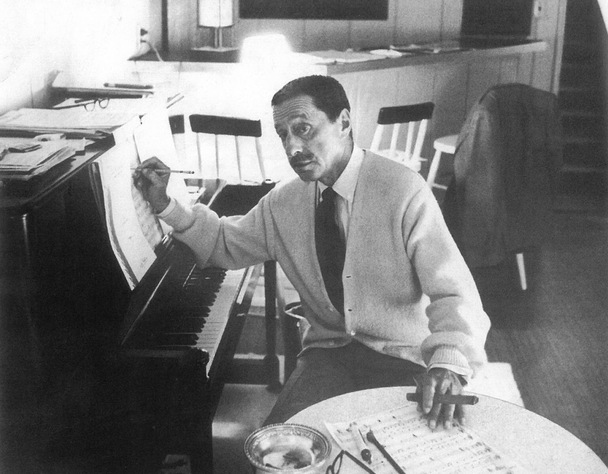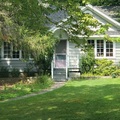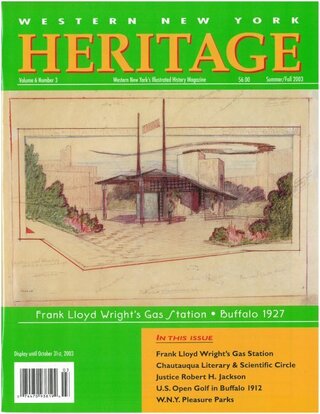I’ve collaborated with Harold Arlen many times. Fortunately, he never found out.
His “I’ve Got a Right to Sing the Blues” inspired my CD, “I’ve Got a Right to Sing the News.” Between us, that tune has sold almost two billion copies.
His “Blues in the Night” is my Iraq War song:
The Song of the Fedayeen
My mulla’ done tole’ me
He talked to a cleric
He said it’s a holy...war
You’re going to Heaven
with thousands of virgins
Not to be a loser no more
It’s Paradise calling
So put on your coat
And get off your goat
Give-the-U.S.
The blues....in the night
His “If I Only Had a Brain” is my ode to Ted Kennedy:
When I make a speech pol-it-ic,
They still bring up Chappaquiddick,
And treat me with disdain
(whistle)
I would have been your President
An ex Oval Office resident
If I’d only had a crane...
Well, you get the idea but we really do have a bit in common. He joined The Buffalodians at 16. I formed my own band at the same age, but The Kenmorons never caught on.
The son of a cantor, he changed his name and married a beautiful Catholic named Anya. A Catholic, I changed my name and married the beautiful girl named Kaplan.
His “Over the Rainbow” has been judged the best of the century. My interpretation of “Lydia the Tattooed Lady” has been judged the worst of the millennium.
But let’s talk about Arlen’s Buffalo days. He was born Hyman Arluck in 1905 to a musical family. His dad, Samuel Arluck, cantor of the Pine Street Synagogue, was, according to his son, “the greatest theme and variations man I’ve ever known.”
His parents encouraged his talent so that he could, as a music teacher, control his own schedule and properly keep the Sabbath. But what happened was right out of The Jazz Singer:
“Mama, I don’t want to sing at the Pine Street Synagogue.”
“What’s the matter, you’re too good for the Pine Street?”
“No, it’s not that, I just...”
“You want to move up? You have ambition. That’s good. Next week, we’ll quit the Pine Street Synagogue and you will sing at the Elm Street Synagogue.”
“Mama, how can I tell you? I’m not singing at Pine or Elm or anyplace else named after lumber. I want to be famous and go to New York. I want to sing at the Oak Room.”
Cantor Arluck took it in stride. He knew the Al Jolson story and was sure that Hyman was destined for greatness. Maybe not on the scale of Asa Joelson, who went to New York to become rich and famous by singing like a black man. Nothing could be that great. But, just maybe....
“Son,” he said, like a preacher, “I have a dream. I have a dream that one day, every valley shall be exalted, every hill and mountain shall be made low, the rough places will be made plain and the crooked places will be made straight. I have a dream. I have a dream that you will go to New York to become rich and famous by singing in Harlem.”
Harkening to his father’s dream, Hyman abandoned classical music for jazz. He immersed himself in records by The Mississippi Mudders, The Emperors, The Cotton Pickers and Louis Armstrong. His grades at P.S. 32 suffered but he didn’t care.
In homage to Phil Napoleon’s Memphis Five, he started his own Buffalo Five. But he made a youthful misstep. The Buffalo Five had only three guys in it. In those smoke-filled dance places of the era, they got away with the downsizing for weeks, claiming the other two guys were shyly playing behind the potted palms. But, one fateful day, his mother, Celia, attending a tea dance matinee, counted the musicians on the stand and was embarrassed. She grabbed Hyman by the ear, told him to rename the group and make it snappy. Thus was born The Snappy Trio.
On to Fosdick-Masten High for a brief tenure, quitting at sixteen to join some older Buffalo boys: Norman Booth, William Wullen, Dick George, Jack McLoughlin, Jules Piller, Harold Tapson, Charles Pennica, Harold Raub, Leland Kromparth and Ivan Beaty.
They rehearsed at the Knotty Pine Inn.
Hyman sighed. “Wrong wood. I want the Big Time wood.”
Glamour, opulence and luxury were calling. So he answered in the only way he could. He got a job on the Crystal Beach boat. Singing near a mahogany bar.
He wrote only one song for the Crystal Beach Boat but it became legendary in the Day Trip world. Passengers aboard SS Canadiana were strictly waltz and polka patrons, except for Sunday when they played hymns. But one infamous Saturday night, steaming easterly, Hyman, desperate for recognition, made musical history. While the band paused after a medley of ballads, he stood up at the piano and played a tune, no longer extant, describing Harlem music to a new step he called “the Jeep.” He sang so enthusiastically that couples shook the boat with their gyrations, causing an international incident. The Niagara Frontier Association was cited by the Province of Ontario for the crime of “Jezzband dancing.” Had Crystal Beach tides not pushed them east of the 77th meridian, Canadian maritime penalties, calling for plank walking, would be in effect. Luckily, he was merely caned and exiled to North Park. But for the next fifty years, there were two signs in the Crystal Beach boat bar...one said “Drink Canada Dry,” a challenge during Prohibition, and the other said “No Jeeping,” a sad commentary on provincial morality during the Roaring Twenties.
Broke, disheartened, but still aglow with his never-ending love for Buffalo, he tried again for the brass ring. He did it with brass buttons. He did it with brass.
Hyman Arluck took the bus to Sattlers’ for two double-breasted navy blazers, gold buttons, the belt in the back. Three pair of white duck plus fours, pegged top with a reet pleat, suspender buttons and cut velvet belt loops. Nice threads. He was a knockout. He looked very mature, perhaps as old as 16. So impressed was Mr. John G. Sattler himself that he came down off the ladder he constantly perched on to discourage shoplifters. But when it came time to pay, Harold eagerly pointed to the sign that said “Easy Credit,” only to watch Mr. Sattler go back up the ladder.
“For you, not easy,” called down Mr. Sattler. “For credit, you should buy in your own neighborhood. Hens & Kelly.”
“Boy, have you got the wrong neighborhood. But I’m changing my name the day I’m eighteen. And, for now, if you give me these beautiful garments, I will tell everyone what a deal you gave me and I’ll write you a jingle you can play on the radio. It’ll go a little something like this:
The night is bitter
The stars have lost their glitter
The winds grow bolder
And suddenly you’re colder
And all because of
The threads you threw away-
If you want blazers warm
To wear in sun or storm...”
“Stop, stop,” yelled Mr. Sattler. “I want a hook not a symphony. Give me something that sings...It must have melodic simplicity, something with playful passion, enlightening and momentous, succinct, crisp, frangible and 10 seconds long.”
“I’ve got it! How about:
It’s quarter to three
There’s no one in the place
Except you and me”
“No, we don’t need a narrative line; we’re selling pants here...think subtext. You want to accentuate the positive and eliminate the negative...”
“I’ve got it!
...That old black magic”
“Black? Oh, our Polish people will love that.”
“Okay, okay, you want ethnic?
Don’t know why
I stop buttoning my fly
On Yom Kippur
Sattler’s slacks always have a zipper
They slide up all the time”
“Cute. No. Put your pants back on the rack.”
And then, as it was to do for much of the rest of his life, musical inspiration struck. In the key of C, his inner voice sang “GGGABA.”
“No, wait...Here it comes. I’ve got it. I’m going to sing it right here, right now!”
Shop and save at Sattlers
998 Broadway
In Buff a lowwwww”
“Beautiful, done,” said Mr. Sattler. “Keep the clothes. And grow a moustache. You want some shoes to go with?”
“Later. Right now, I’m going over to sell a jingle to Rosenblatt, the furrier.”
Lost in mythology and the fog of history, Hyman Arluck's adventures in Buffalo trail off about here, at 1,419 words. We can invent some more song fragments:
How do you get to the
Carnegie Delicatessen?
Practice and stay kosher
When he left Buffalo for Broadway and the “big-time wood” called Hollywood, he became an experienced Broadway, Vaudeville and Harlem celebrity who looked and sang like a movie star. We may even have liked him on the silver screen but, luckily, George Gershwin happened to hear some of his stuff, tracked him down and told him he had missed his calling. He was a composer. Talk about your late vocations....
He did acquire one creative habit in Buffalo which he seldom abandoned. Popular songs of that period followed a strict pattern limiting them to thirty-two measures. Audiences and sheet music buyers expected a certain regularity for a musical number to become a hit but, because Harold Arlen was an entertainer, he didn’t write “numbers” for the public. He wrote for entertainers. And his song followed no pattern. As Ira Gershwin said, “He’s not a 32-bar man.” “That Old Black Magic” is 72 bars, “One For My Baby,” 48, “The Man That Got Away,” 62, and so on.
I admire Harold Arlen so much that I attempted to write a song to honor this habit:
I told you I loved you in 32 bars
And all you did was drink my beer








